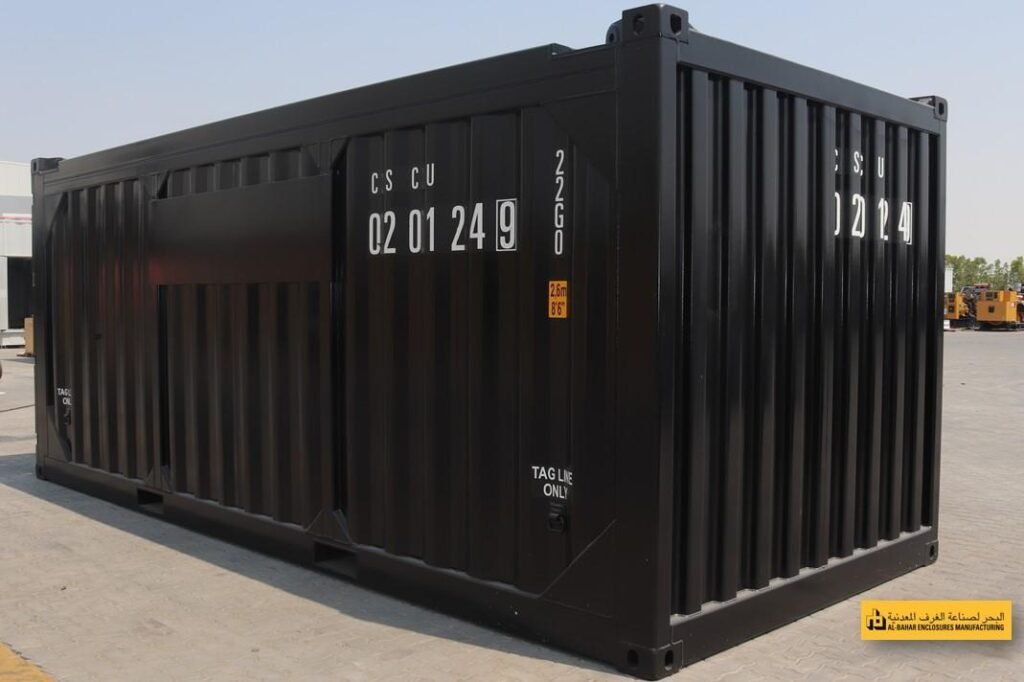Offshore operations are some of the most complex and challenging undertakings in the maritime and oil and gas industries. These operations often occur in harsh and unpredictable environments, where safety, reliability, and efficiency are paramount. Among the many critical components that contribute to the success of offshore operations, one stands out for its crucial role in ensuring the safe transportation and storage of equipment and goods: the DNV certified offshore container.
Understanding DNV Certification
DNV (Det Norske Veritas) is an internationally recognize classification society and a trusted authority in risk management and quality assurance. Founded in 1864, DNV has a long history of setting industry standards that prioritize safety, environmental sustainability, and operational efficiency. DNV certification is a mark of quality and reliability, signifying that a product or service meets rigorous standards.
In the context of offshore containers, DNV certification ensures that these containers are design, manufactured, and tested to withstand the harsh conditions encountered in offshore environments. The standards for DNV-certified containers are outline in DNVGL-ST-E271, which specifies the requirements for offshore containers used in the oil and gas industry, maritime operations, and other offshore activities.
The Importance of Offshore Containers
Offshore containers play a vital role in the logistics of offshore operations. These containers are used to transport and store various types of equipment, tools, and supplies, including hazardous materials. Given the remote and often challenging locations of offshore installations, the safe and efficient handling of these containers is essential to the success of the operation.
Offshore containers must endure extreme weather conditions, rough handling during lifting and transportation, and exposure to saltwater, which can lead to corrosion. Therefore, the design and construction of these containers must be robust and reliable. This is where DNV certification becomes crucial, as it ensures that the containers meet the highest standards of safety and durability.
Key Features of DNV-Certified Offshore Containers
1. Robust Construction: DNV-certified offshore containers are built to withstand the harshest conditions. They are typically constructed from high-quality steel, with reinforced corners and frames to provide additional strength. The design also includes features such as anti-corrosion coatings and weatherproof seals to protect the contents from environmental factors.
2. Safety Features: Safety is a top priority in offshore operations, and DNV-certified containers are designed with several safety features. These include secure locking mechanisms, fire-resistant materials, and ventilation systems to prevent the buildup of hazardous gases.
3. Versatility: Offshore containers come in various types and sizes, each designed for specific purposes. These include general-purpose containers, open-top containers, refrigerated containers, and containers for hazardous materials. DNV certification ensures that each type of container meets the necessary safety and performance standards for its intended use.
4. Testing and Inspection: Before a container can be certified by DNV, it must undergo rigorous testing and inspection. This includes load testing, where the container is subject to loads beyond its maximum rated capacity to ensure it can handle extreme conditions. The container is also inspect for structural integrity, corrosion resistance, and overall quality. Only after passing these tests does the container receive DNV certification.
The Benefits of Using DNV-Certified Offshore Containers
1. Enhanced Safety: The primary benefit of using DNV-certified offshore containers is enhanced safety. By adhering to strict standards, these containers minimize the risk of accidents, such as container failure during lifting operations or leakage of hazardous materials. This is especially important in offshore environments, where accidents can have severe consequences for both personnel and the environment.
2. Operational Efficiency: DNV-certified containers contribute to operational efficiency by ensuring the safe and reliable transportation of equipment and supplies. The durability and robustness of these containers mean they require less maintenance and are less likely to suffer damage during operations. This reduces downtime and ensures that offshore activities can proceed smoothly.
3. Compliance with Regulations: Offshore operations are subject to stringent regulations, particularly regarding safety and environmental protection. Using DNV-certified containers ensures compliance with these regulations, reducing the risk of penalties or delays. Additionally, DNV certification is often a requirement in contracts with major oil and gas companies, making it essential for suppliers and contractors in the industry.
4. Reputation and Trust: Companies that use DNV-certified offshore containers demonstrate a commitment to safety, quality, and reliability. This can enhance their reputation and build trust with clients, partners, and regulators. In an industry where trust is critical, DNV certification can be a significant competitive advantage.
Conclusion
In the demanding world of offshore operations, the importance of using reliable and safe equipment cannot be overstate. DNV-certified offshore containers are a key component in ensuring the success of these operations. With their robust construction, safety features, and rigorous testing, these containers provide the assurance that equipment and supplies will be transported and stored safely, even in the most challenging conditions.
For companies involved in offshore operations, investing in DNV-certified containers is not just a matter of compliance; it is a commitment to safety, efficiency, and excellence. As the offshore industry continues to evolve, the role of DNV-certified containers will remain crucial in meeting the challenges of the future and ensuring the continued success of offshore projects worldwide.




